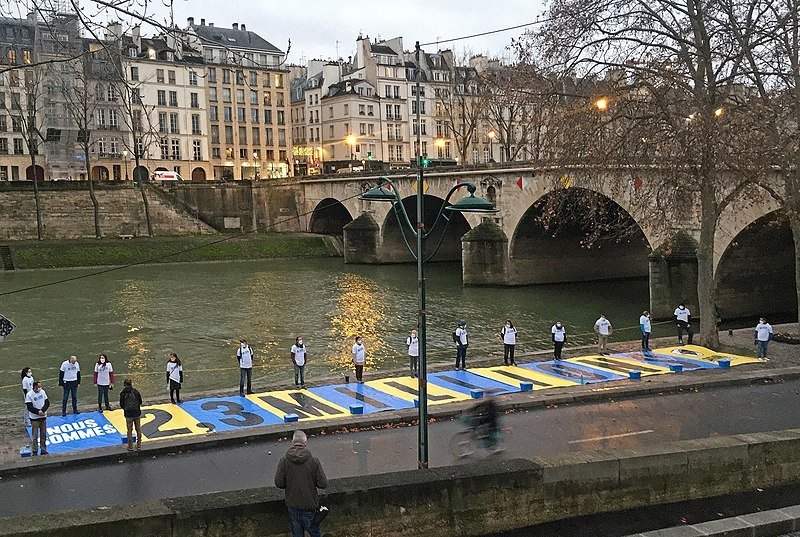FRANCE: CSOs achieved a milestone for climate justice against the state
On 14 October, the Paris Administrative Court ruled in favour of the so-called “Case of the Century” (“Affaire du Siècle”): the French State is ordered to repair, before 31 December 2022, the environmental damage caused by the emission of too many Greenhouse Gases (GHG) between 2015 and 2018. This ruling came after the hearing took place on 30 September, when the public rapporteur proposed to the judges to enjoin the State to take all necessary measures to prevent further climate aggravation, on the basis of briefs provided by the applicant CSOs and the government.
The case has started in December 2018, when Notre Affaire à Tous, Fondation Nicolas Hulot, Greenpeace France and Oxfam France sent a preliminary indemnity request to the French government. An online petition was then launched, passing the two million signature mark in less than three weeks. On 3 February 2021, the Paris Administrative Court recognised the State’s guilt for climate inaction and the existence of ecological damage.
As reported by the media, on 14 October, the judges wrote: “The Prime Minister and the competent ministers should be ordered to take all necessary sectoral measures to repair the damage to the extent of the uncompensated share of GHG emissions under the first carbon budget“, quantifying the shortfall in relation to the objectives at 15 million tonnes of CO2 equivalent. However, the judges left the choice of measures to be taken to “the free appreciation of the government” and rejected, at this stage, the CSOs’ request for a financial penalty of 78 million euros per half-year of delay.
From 2015 to 2018, France exceeded its “carbon budget” by 61 million tonnes of CO2 equivalent. Since then, the targets have been met only because the carbon budget was raised in 2019, and because the year 2020 was marked by the Covid-19 pandemic. In its latest report, published in June 2021, the French High Council on Climate pointed out that the country was “not yet on track for the 40% emissions reduction target in 2030, let alone carbon neutrality in 2050.“
In July 2021, the Council of State also found that the climate measures taken by the government were not sufficient to meet the national objective of reducing GHG emissions by 40% by 2030. France’s highest administrative court had therefore enjoined the Prime Minister to take “all useful measures to achieve the objective of the Paris Agreement” by 31 March 2022.
“This victory is nothing short of historic and marks a milestone for climate justice“, claimed Greenpeace France on the day of the Paris Administrative Court’s ruling.
Welcoming the Paris Administrative Court’s decision as “essential jurisprudence“, the Executive Director of Notre Affaire à Tous, Cécilia Rinaudo, said to the media that all governments would now be caught “in the grip of a double obligation […] to prove the effectiveness of their climate policy and to respect the commitments made“, under the threat of being condemned to “repair any deviation“.
For the Affaire du Siècle organisations: “The State now has an obligation to achieve results for the climate. We owe this necessary break with current climate policy to the judges who have taken up the climate issue and to the unprecedented mobilisation of the 2.3 million people who have supported the Affaire du Siècle.“
The four CSOs behind the complaint are now calling on the candidates for the 2022 presidential election in France to demonstrate, with figures, how they intend to meet the climate targets.

